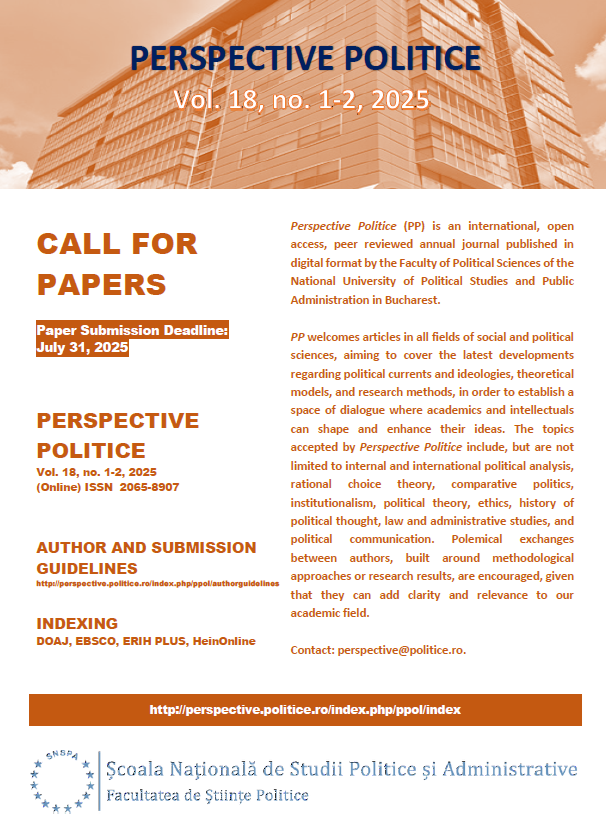Reflective Doctrine Analysis and Impact on the Internal and Foreign Policy of the Republic of Moldova
Abstract
In this article, I aim to highlight the importance of the analysis on the impact of reflexive gameson the internal and foreign policy of the Republic of Moldova. Such analyzes are applied for the first time in our country regarding reflexive games. Until now, Moldova has been the subject and object of external reflexive applications. Advances in information technology are less visible and palpable for the reading public, which is not only a consumer of information, but also a subject and object of reflective informal technologies. Mathematics specialists model and create effective quantitative conflict management models. Experts in game theory and decision-making promote their own approaches in an increasingly wide range of fields (political, military, economic, etc.). But at the same time, the same specialists say that the individual is described too simplistically, the large sets and masses, with their properties, do not fit into mathematical models. One of the radical challenges for game theory and decision-making theory remains the need to develop the apparatus of reflection (first conceptually, then formally). Reflexive analysis refers to one’s own awareness of the meaning of reflexive communication and interpersonal interaction. At the same time, the reflection as an object of research, since the introduction of this category by J. Locke, is considered entirely belonging to the fields: philosophy and psychology.




